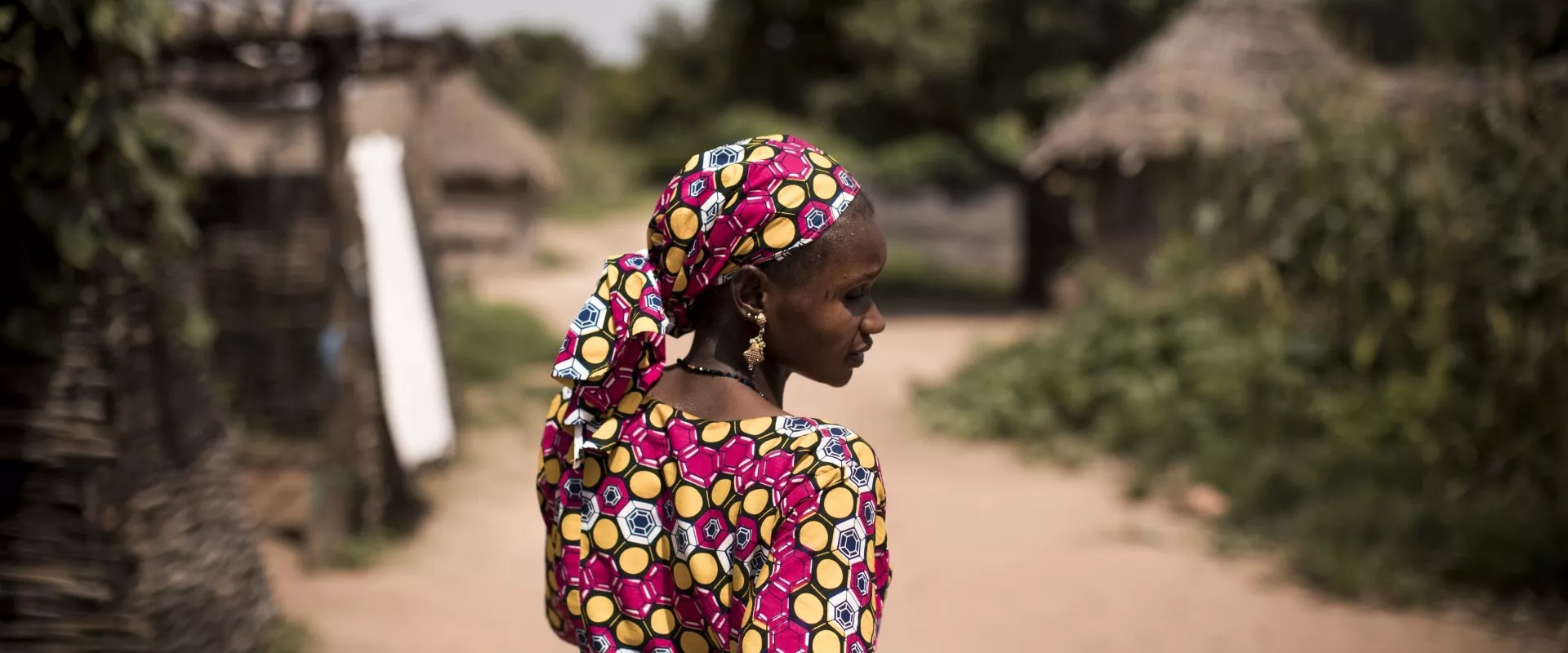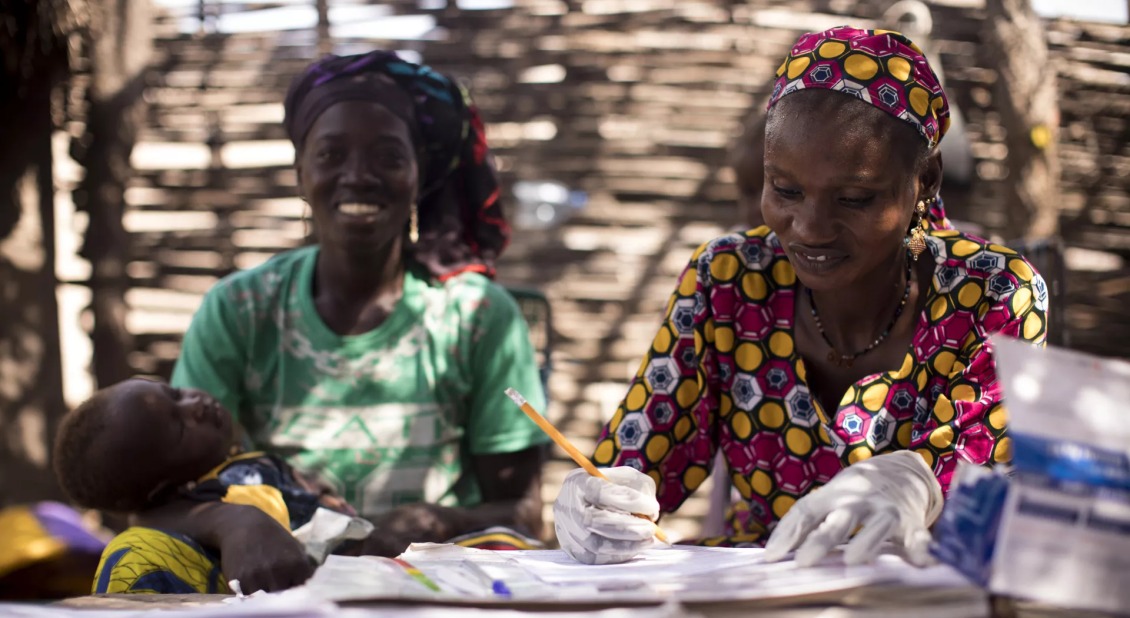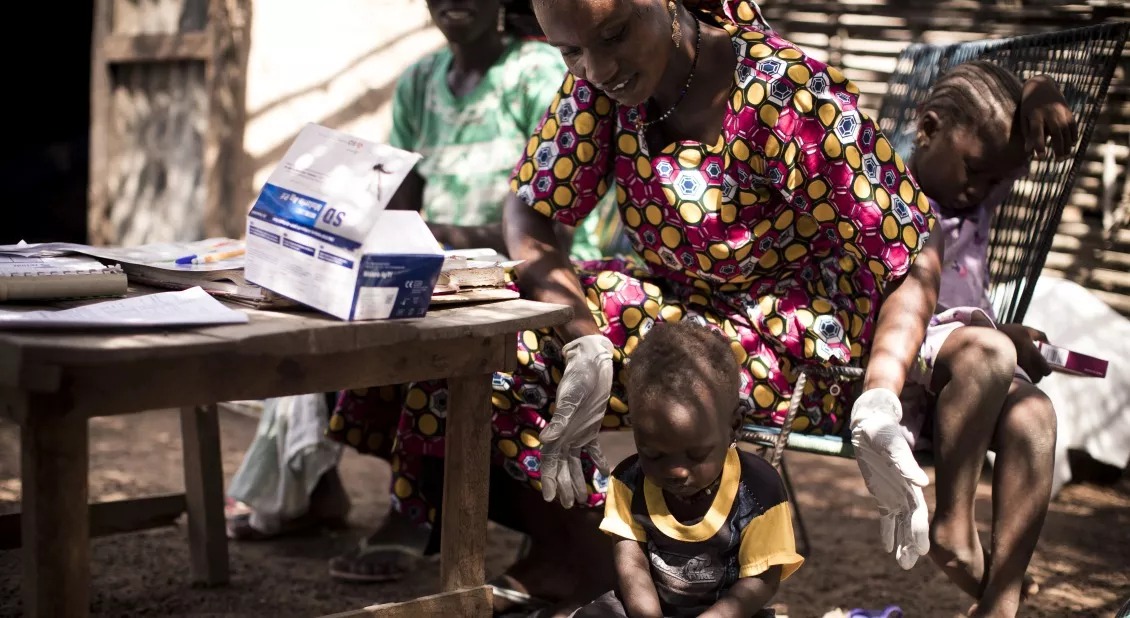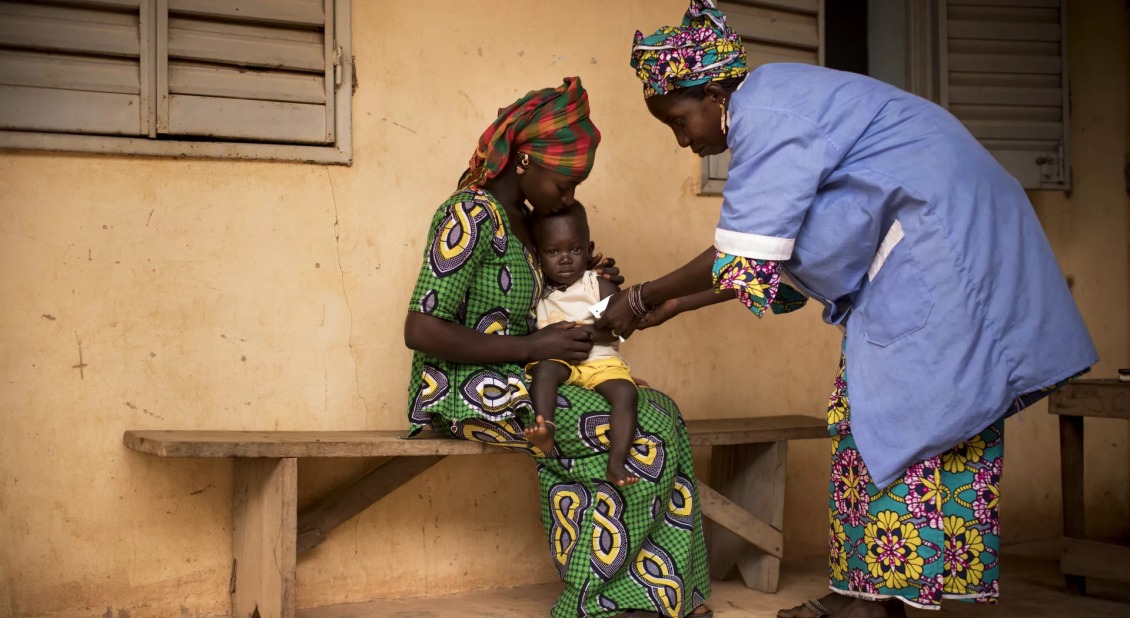
GIVE THIS RAMADAN

A few years ago, a baby named Musa fell very ill. No one in his village of Kourougue in Mali recognized his symptoms. His mother, Many, didn’t know how to help him. Without treatment, Musa got worse, until his parents had no choice but to bring him to a health center – a two-hour journey on foot.
Once at the health center, Musa was diagnosed with severe acute malnutrition – a case so advanced that his parents had to rush Musa to an Action Against Hunger inpatient facility. Many stayed with her son while he was treated at the hospital for more than two weeks, time that she wasn’t able to work or care for the rest of her family.
Musa is now a healthy four-year-old, but a similar fate nearly befell Musa’s younger sister, Fatumata, a few months ago. Thankfully, this time, a woman named Hawa Coulibaly was there to intervene earlier.
Hawa, a community health worker trained by Action Against Hunger, was walking through the village and spotted Fatumata. Identifying the signs of malnutrition, she asked Many to bring the little girl to the clinic she operated right in their village. Hawa diagnosed Fatumata with severe acute malnutrition and prescribed a three-week course of treatment. With Hawa’s guidance, Many provided therapeutic food for her daughter, at home, until she made a full recovery.
“Before Hawa, we were living in darkness,” says Many. “Since she has come here, children are healthier and mothers are happier.”

In Mali, and in several of the countries where Action Against Hunger works, acute malnutrition rates are high, despite the fact that it is a predictable, preventable, and treatable condition. Often, parents like Many aren’t able to recognize their children’s sickness before it gets serious, and health centers are miles away.
To bridge this gap between communities and the health system, Action Against Hunger relies on community health workers, most of whom are women. We’re teaming up with local governments and partners to make sure that community health workers have the skills and tools they need to both diagnose and treat malnutrition cases in the villages where they live and work. Community health workers help to spot cases early and save parents the long walk to the nearest clinic.
Before Hawa’s arrival in Kourougue, malnutrition was believed to be a sign of the devil and, out of desperation, many families would turn to ineffective traditional remedies. Hawa has taught parents how to spot the signs of malnutrition and other diseases and shows them how to keep their children healthy.
“Since Hawa has been in the village, I’ve noticed a change,” says Mamissa, mother of Simbo, who recently recovered from a case of acute malnutrition. “There were a lot of sick children before, but now there are few.”
As Hawa transforms health care in Kourougue, there are thousands more women like her across the more than 45 countries in which we work. Together, by going from mother to mother, home to home, they are reaching more children with care and treatment than ever before.

Naré Tounkara has seen the impact first-hand in her role as matron of a health center in Kita, the same region of Mali where Hawa works. She has seen many changes over the last decade, and one of the most encouraging has been the drop in the number of malnourished children in the area – progress largely due to Action Against Hunger’s work with local health authorities at the community level.
“People now have information about malnutrition in the villages,” Naré explains. “They know if a child is sick, the child could be malnourished. In the beginning, we used to go through the towns to fetch children, but now it’s the children’s mothers that bring in the children themselves.”
Allaye Tembely, deputy head of Action Against Hunger’s base in Kita, added:
“In some households, even if women know about nutrition, the man is still making decisions about what to eat,” Allaye says. “We must give decision-making power to women to make choices about food for her and her children and give economic opportunities to women so they can diversify the family’s diet. If you give power to a woman, she can fight effectively against malnutrition.”

Join our community of supporters passionate about ending world hunger.